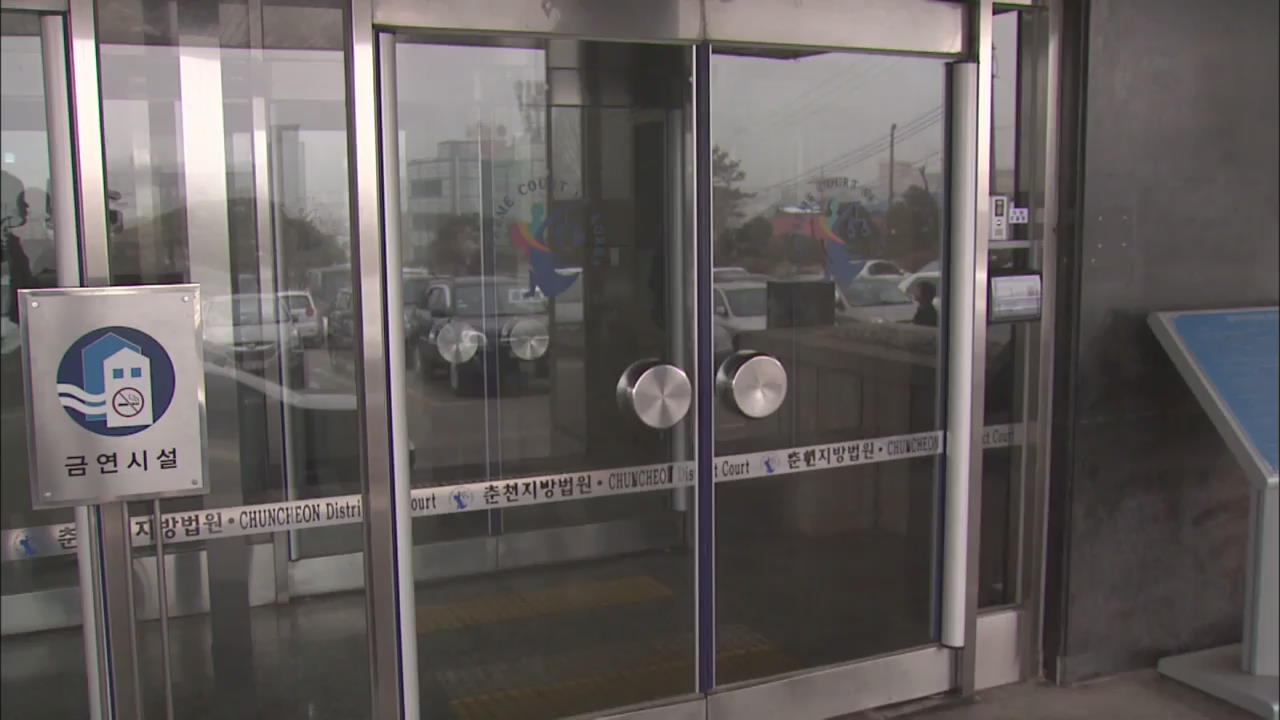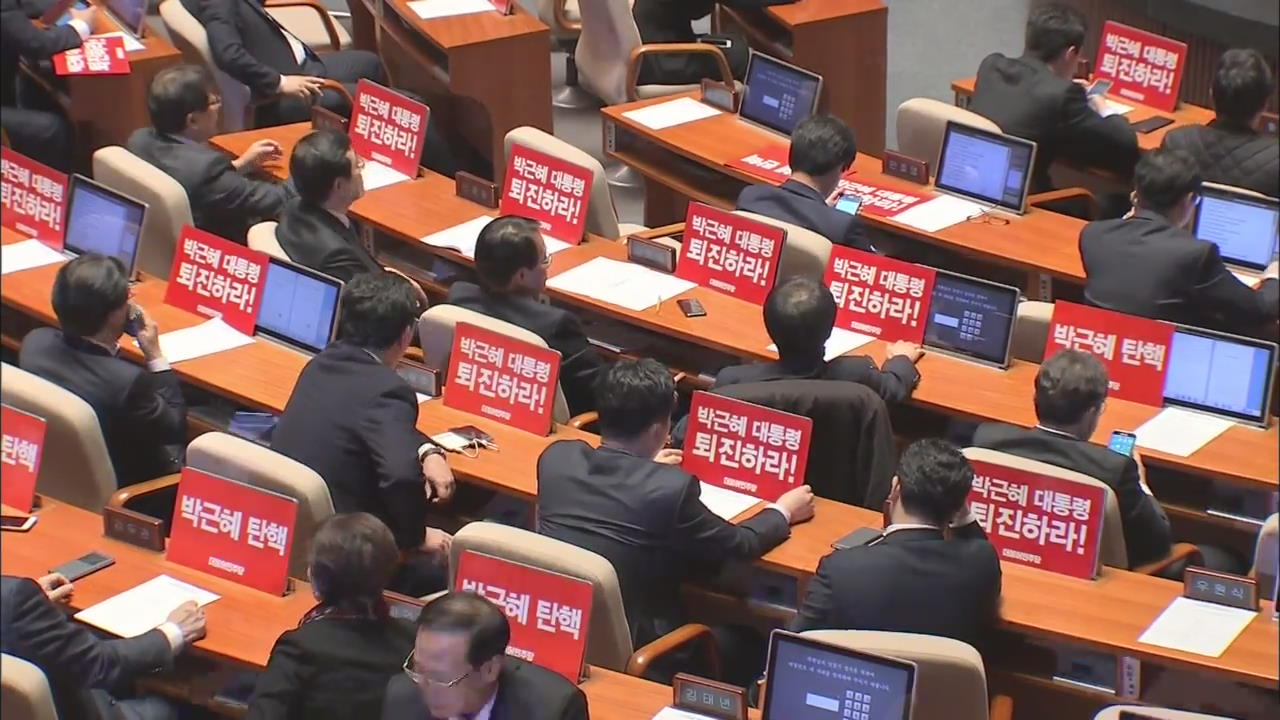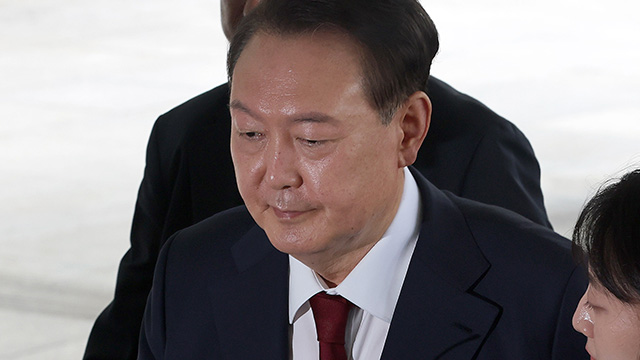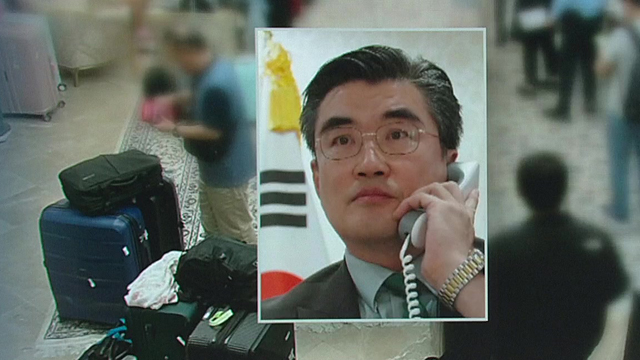Anti-Graft Precedent
입력 2016.12.09 (14:15)
수정 2016.12.09 (16:28)
읽어주기 기능은 크롬기반의
브라우저에서만 사용하실 수 있습니다.
[Anchor Lead]
A court verdict has been issued for the contentious first-ever trial involving the violation of the Improper Solicitation and Graft Act, also known as the Kim Young-ran act. Here’s how the case unfolded.
[Pkg]
On the first day of the Improper Solicitation and Graft Act implementation on September 28...A fifty-something man became the first in Korea to be charged with violating the anti-graft law by having rice cakes delivered to a police officer. A court found the man guilty of violating the law.The Chuncheon District Court ordered the man to pay a fine for delivering approximately 38 dollars worth of rice cakes to a police officer. The fine was 77 dollars, or double the cost of the rice cakes.
[Soundbite] Kim Dae-hyun(Judge, Supreme Court) : "This ruling means that even though the price of the gift was not very high, it was still a violation of the anti-graft law and could obstruct the fairness,transparency and credibility of police investigations."
The court dismissed the man's claim that the rice cakes were only a gesture of gratitude. Unlike the existing anti-bribery law, the newer anti-graft law bans any provision of gifts related to officials' duties or positions even if nothing is offered in return. The court said that the delivery of rice cakes was related to the police officer's duties such as investigation of criminal cases. A fine for violating the anti-graft law can be as high as five times the price of the provided gift. However, in this case the man was ordered to pay just double the price of the rice cakes given their relatively low value and the fact that the police officer returned the gift right away. The first-ever court ruling on the anti-graft law violation will likely set a precedent for other similar cases.
A court verdict has been issued for the contentious first-ever trial involving the violation of the Improper Solicitation and Graft Act, also known as the Kim Young-ran act. Here’s how the case unfolded.
[Pkg]
On the first day of the Improper Solicitation and Graft Act implementation on September 28...A fifty-something man became the first in Korea to be charged with violating the anti-graft law by having rice cakes delivered to a police officer. A court found the man guilty of violating the law.The Chuncheon District Court ordered the man to pay a fine for delivering approximately 38 dollars worth of rice cakes to a police officer. The fine was 77 dollars, or double the cost of the rice cakes.
[Soundbite] Kim Dae-hyun(Judge, Supreme Court) : "This ruling means that even though the price of the gift was not very high, it was still a violation of the anti-graft law and could obstruct the fairness,transparency and credibility of police investigations."
The court dismissed the man's claim that the rice cakes were only a gesture of gratitude. Unlike the existing anti-bribery law, the newer anti-graft law bans any provision of gifts related to officials' duties or positions even if nothing is offered in return. The court said that the delivery of rice cakes was related to the police officer's duties such as investigation of criminal cases. A fine for violating the anti-graft law can be as high as five times the price of the provided gift. However, in this case the man was ordered to pay just double the price of the rice cakes given their relatively low value and the fact that the police officer returned the gift right away. The first-ever court ruling on the anti-graft law violation will likely set a precedent for other similar cases.
■ 제보하기
▷ 카카오톡 : 'KBS제보' 검색, 채널 추가
▷ 전화 : 02-781-1234, 4444
▷ 이메일 : kbs1234@kbs.co.kr
▷ 유튜브, 네이버, 카카오에서도 KBS뉴스를 구독해주세요!
- Anti-Graft Precedent
-
- 입력 2016-12-09 14:15:36
- 수정2016-12-09 16:28:25

[Anchor Lead]
A court verdict has been issued for the contentious first-ever trial involving the violation of the Improper Solicitation and Graft Act, also known as the Kim Young-ran act. Here’s how the case unfolded.
[Pkg]
On the first day of the Improper Solicitation and Graft Act implementation on September 28...A fifty-something man became the first in Korea to be charged with violating the anti-graft law by having rice cakes delivered to a police officer. A court found the man guilty of violating the law.The Chuncheon District Court ordered the man to pay a fine for delivering approximately 38 dollars worth of rice cakes to a police officer. The fine was 77 dollars, or double the cost of the rice cakes.
[Soundbite] Kim Dae-hyun(Judge, Supreme Court) : "This ruling means that even though the price of the gift was not very high, it was still a violation of the anti-graft law and could obstruct the fairness,transparency and credibility of police investigations."
The court dismissed the man's claim that the rice cakes were only a gesture of gratitude. Unlike the existing anti-bribery law, the newer anti-graft law bans any provision of gifts related to officials' duties or positions even if nothing is offered in return. The court said that the delivery of rice cakes was related to the police officer's duties such as investigation of criminal cases. A fine for violating the anti-graft law can be as high as five times the price of the provided gift. However, in this case the man was ordered to pay just double the price of the rice cakes given their relatively low value and the fact that the police officer returned the gift right away. The first-ever court ruling on the anti-graft law violation will likely set a precedent for other similar cases.
A court verdict has been issued for the contentious first-ever trial involving the violation of the Improper Solicitation and Graft Act, also known as the Kim Young-ran act. Here’s how the case unfolded.
[Pkg]
On the first day of the Improper Solicitation and Graft Act implementation on September 28...A fifty-something man became the first in Korea to be charged with violating the anti-graft law by having rice cakes delivered to a police officer. A court found the man guilty of violating the law.The Chuncheon District Court ordered the man to pay a fine for delivering approximately 38 dollars worth of rice cakes to a police officer. The fine was 77 dollars, or double the cost of the rice cakes.
[Soundbite] Kim Dae-hyun(Judge, Supreme Court) : "This ruling means that even though the price of the gift was not very high, it was still a violation of the anti-graft law and could obstruct the fairness,transparency and credibility of police investigations."
The court dismissed the man's claim that the rice cakes were only a gesture of gratitude. Unlike the existing anti-bribery law, the newer anti-graft law bans any provision of gifts related to officials' duties or positions even if nothing is offered in return. The court said that the delivery of rice cakes was related to the police officer's duties such as investigation of criminal cases. A fine for violating the anti-graft law can be as high as five times the price of the provided gift. However, in this case the man was ordered to pay just double the price of the rice cakes given their relatively low value and the fact that the police officer returned the gift right away. The first-ever court ruling on the anti-graft law violation will likely set a precedent for other similar cases.
이 기사가 좋으셨다면
-
좋아요
0
-
응원해요
0
-
후속 원해요
0













![[속보] 정성호 “검찰 해체 표현 부적절…국민 요구사항, 검사들도 잘 알 것”](/data/layer/904/2025/07/20250701_86evyp.png)



이 기사에 대한 의견을 남겨주세요.